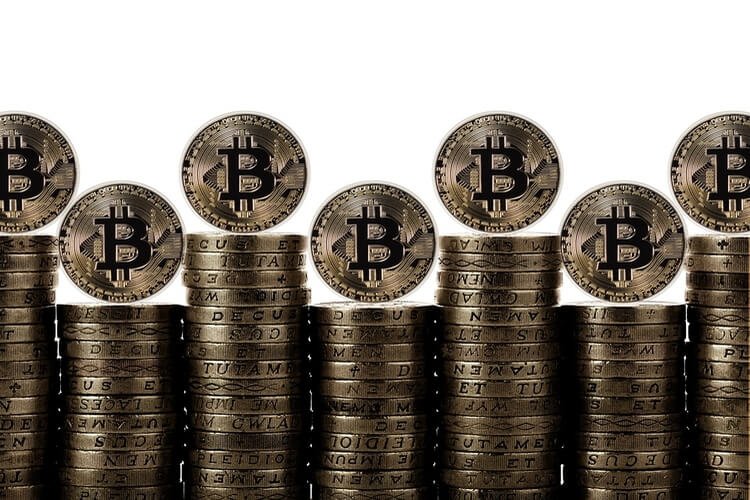Der Bitcoin. Is there a threat to the security and economy of Germany from the cryptocurrency?

The official history of Germany's relationship with cryptocurrency started in 2013. Then the German Finance Ministry said that bitcoin can not be classified as digital or foreign currency. Its status was limited to the definition of "private money", which can be used in multilateral clearing operations. That is, bitcoin was legally recognized as a "unit of account", but its use was allowed only for private transactions. At the same time, the business received official instructions on how to treat bitcoins in accounting. Despite the reservations, this decision can be considered a victory for German lobbyists of bitcoin. Most of them support the ideas of Frederick August von Hayek, a classic of economic liberalism, who once advocated the denationalization of money. Member of the Finance Committee Frank Schaeffler said that recognition of bitcoin would increase "competition in the field of currency production".
At the same time, bitcoin was regularly criticised both at the regional and federal levels. In early 2016, two months after the terrorist attacks in Paris, the Christian-Social Union party condemned the crypto currency. The main reason for such negative attitude among the conservatives was the use of cryptocurrency as a means of financial support of extremism.
"Bitcoin can not only be transferred without leaving traces, but it's easy to change to euros or dollars," writes Die Welt, in support of the concerns of party representatives.
In May 2017, when bitcoin began to grow rapidly in price and received wide coverage in the media, the German federal bank remained skeptical.
"Bitcoin is a means of exchange that is issued not by the central bank, but by unknown persons. I do not see it as a currency," said Karl-Ludwig Thiele, Member of the Executive Board of the Deutsche Bundesbank. "We can only warn people not to use bitcoin to keep purchasing power."
However, he noted that he does not see the need to prohibit cryptocurrency as a means of payment until it violates the laws on money laundering.
"75 million bank transfers, card payments are processed daily in Germany, while in bitcoins only there are only 35,000 transactions," said Thiele.
Another argument in favor of bitcoin's "cleanliness" is presented by German newspaper Handelsblatt. The accusation that it can be used as a means of money laundering is described by the newspaper as exaggerated.
"This diagnosis is incorrect, according to Europol, the most popular tool for the black market is still cash, criminals prefer large banknotes such as $100 and 500 euros," the author writes.
In addition, as the journalist notes, criminals often prefer to pay with diamonds or iPhones.
Bitcoin under control
The German legislation gives enables law enforcement agencies to effectively deal with criminals who carry out illegal transactions with cryptocurrency. And sometimes the boundaries of law may be broadened. In August 2017, the leading German stock exchange, without waiting for a court decision, handed over to police a confidential information about users in the case of a major drug seller online platform Chemical Love.
"The Bitcoin.de service provided the police with personal information about eight addresses, including real names and nicknames, place of residence, e-mail addresses, mobile phone numbers, cumulative order value, bank details, transactions, login history and IP- addresses," writes Vice magazine.
The exchange's decision sparked a flurry of criticism from cryptocurrencies users, especially Bitcoin.de customers. "I do not know what to say, I thought it was a serious company and my data was securely protected," said one of the users whose personal data was at the disposal of the authorities.
The prosecutor's office in Lower Saxony was even busy selling bitcoins. Actually this trade was a call of duty. These were digital money seized from criminals. Considering that for the time being the state treasury did not register a cryptocurrency wallet, the employees of the prosecutor's office had to change bitcoins for cash. During the time when bitcoins were in the office work, their price increased almost four times.
How tax authorities treat bitcoin
In the European Union, VAT is not withheld from the purchase and sale of cryptocurrencies, but other operations may be taxed, for example, income tax or capital gains tax. The fiscal status of bitcoin differs depending on the EU country.
Cryptocurrency is subject to a 25% capital gains tax, but it is withheld only if the profit was received within a year after the bitcoins were purchased. It is also worth noting that the tax on increasing the market value of capital does not apply to mining. The tax is applied only to securities and goods that were purchased with the intention of further reselling in the market and making a profit. Since mining the currency is just a process of creating the value of currency units, in this case only the income tax is applied.